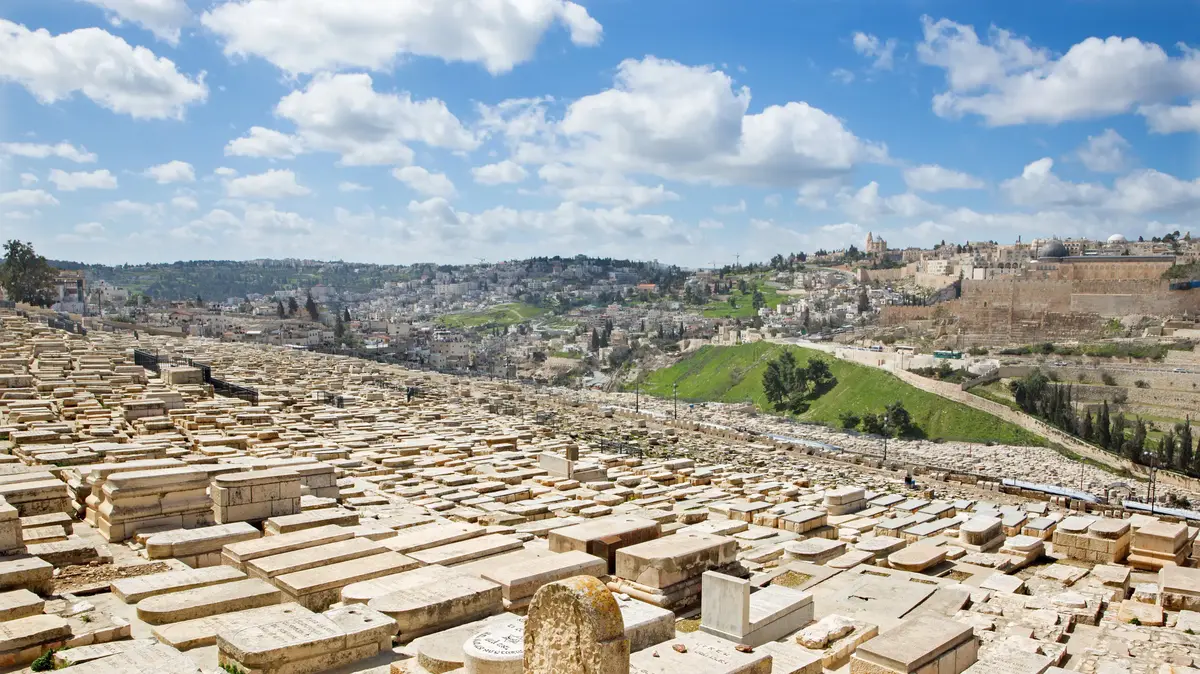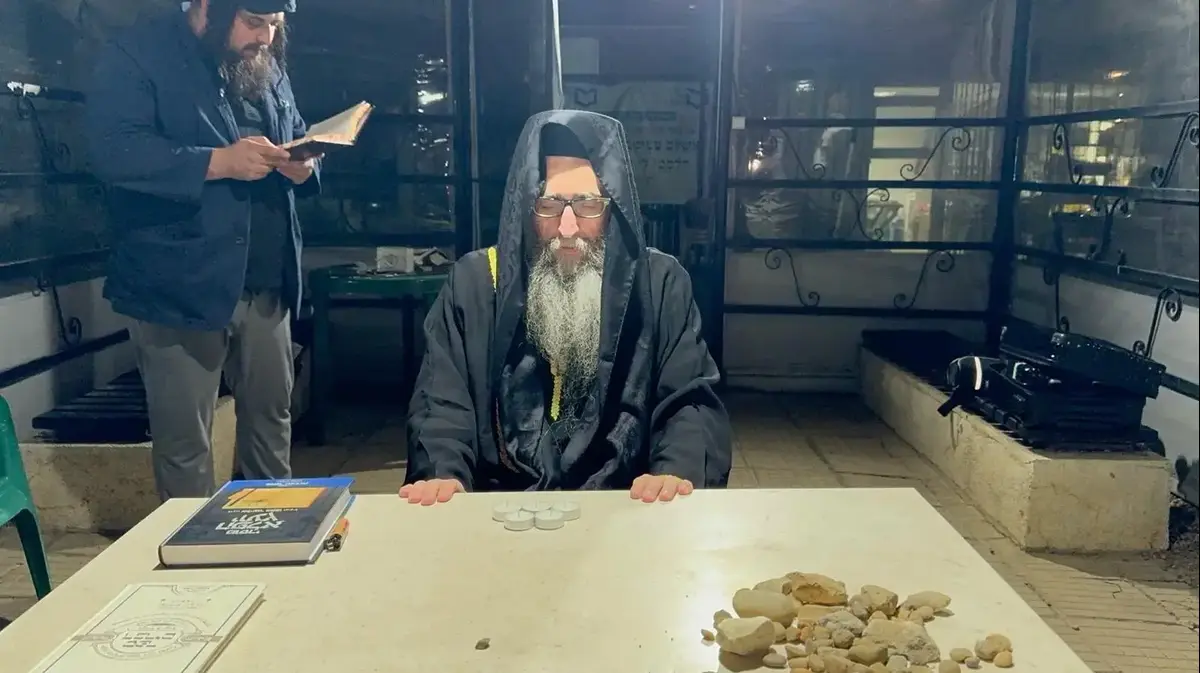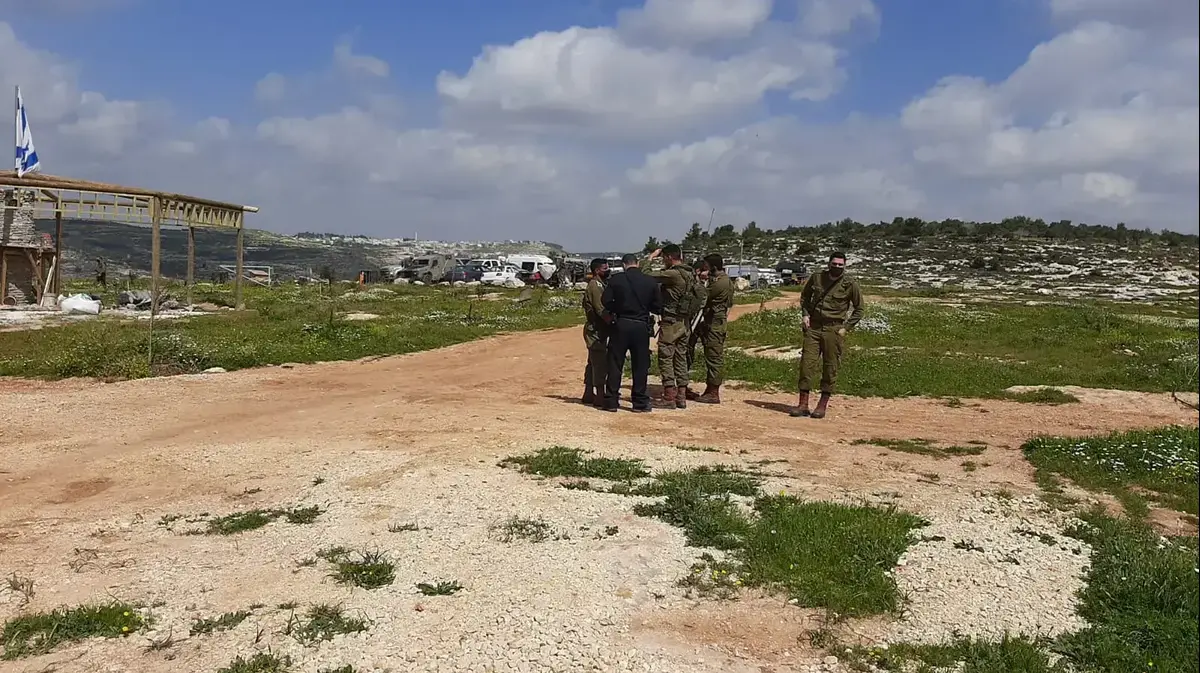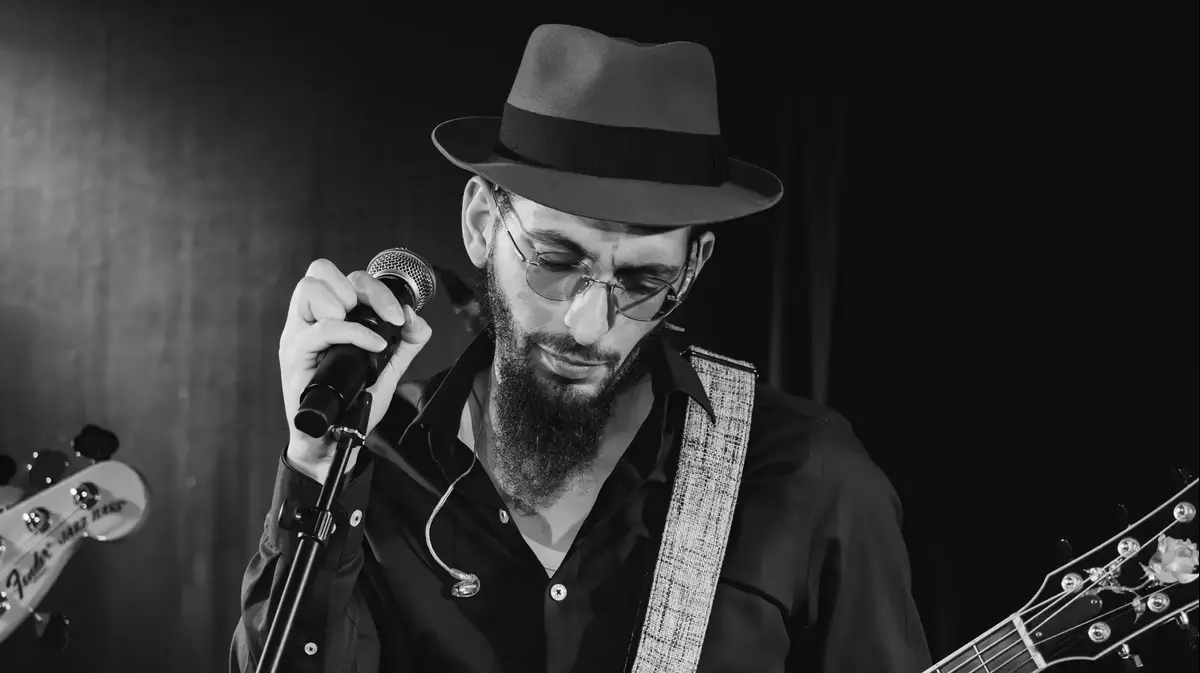No one is allowed to bruise his body, and no one like him is allowed to do whatever he pleases with it (Photo: ShutterStock)
Many times in our daily lives, halachic questions arise and current doubts arise. Rabbi Shai Techan, Rosh Kollel Sha'arei Ezra and Head of Beit Torah Arazi HaLevanon, makes the laws accessible to us and answers questions asked in the beit midrash and beyond. And this week: Is it permissible to travel to the graves of the righteous when they are in danger?
Question:
Hello to the Rabbi. We are planning a trip to the graves of the righteous and I wanted to ask if it is permissible to visit even if passing through Arab villages, even though it borders on some risk?
Answer: Hello to the honorable questioner, we must distinguish this question between a person who wants to bruise himself and a person who endangers himself, and we will explain B"H:
Regarding a person who wants to bruise himself, the Gemara has learned that no person is allowed to bruise his body, that there is no body of a person like him who is entitled to do whatever he pleases with him.
Rabbi Magash wrote: The Torah did not permit a person to grieve himself, and there is no difference between one who distresses his soul or one who distresses his friend. And already the sages (Taanit 11) demanded that it be written in the monk, "And atone for him than sin on the soul," and that in what soul did he sin? But he made himself sad from the wine.
And if a person is forbidden to grieve his body because his body is not considered his, all the more so that he must not endanger himself. And as the Radbaz explained, it is not a person's soul that we bought, but the property of G-d, which is said: "My souls are here" (Yechezkel 18). The Griz also wrote: "It is forbidden to beat his friend even if he gives him permission to beat him, because a person has no permission on his body at all to beat him, nor to shame him, nor to grieve him in any sorrow, even by preventing some food and drink."
Maimonides also wrote: "The soul of the one who is killed is not the property of the Redeemer of blood, but the property of God."
On the other hand, there are those who believe that a person is indeed considered the owner of his body, and that he is permitted to do with it as he pleases, so did another ruling that brought the opinion of the Ramah that forbids a person to bruise himself, that in theory a person does not rule yes, but a person is allowed to bruise himself.
Moreover, the educational facilitator wrote that there is no obligation to save a person who loses himself to knowledge, and just as there is no obligation to return a loss to a person who loses his wealth. He repeated again this idea (Mitzvah 48) that a person has permission over his body, and wrote: "The one who obliged the Torah to strike his father and mother or his friend, we were actually without permission, but if his father and mother or friend tell him that he is there or that he will curse them, he does not pass anyway." And here is his opinion that man has permission over himself.
Indeed, many disagreed with this joy, and as it is stated in the queries (Query S) that even though a father forgives his honor, his honor is forgiven, that is, his honor, but for his beating and cursing the father cannot forgive. The Ribash also wrote that it is forbidden to bruise his friend even with permission.
Indeed, the entire dispute between the above parties concerns only sabotage and contempt so that they will not be in danger, but instead of danger it should not be allowed, for no one is entitled to put himself in danger, a full verse of the commandment that reads, "And you have kept very much to your souls."
Therefore, it seems that there should be a division between those who enter into doubt of real danger, such as those passing through a hostile Arab village, and those who do not enter into any clear danger even though there is a certain degree of risk.
That while it is strictly forbidden to enter a dangerous place, and even though the place is only a dangerous doubt, if there is no real danger but a slight risk, it seems that a place that fulfills a mitzvah should be permitted, and as Rabbi Asher Weiss Shlita (Minhat Asher Part III, Def T.Y.) cited evidence for this, such as what is told in the Gemara (Eruvin 21): "Tanu Rabbanan: The act of Rabbi Akiva who was bandaged in the house of the Asurin, And Rabbi Joshua Hagarsi was his servant. Every single day they would put him water in the meda. One day they found the keeper of the house of the Asurin, said to him today from Rubin, lest you paddle the house of the Asurin you should! He poured a half, and gave him a half. When he came to Rabbi Akiva, Yehoshua said to him, Don't you know that I am old and my life depends on your life? All this time he said to him: Give me water that I will take my hands. He said to him, "Don't you drink to wash your hands from Gi'in?" He said to him, "What shall I do when they must die, it is better I will die of my own death and I will not transgress my friend's opinion." And he wrote about it in Mincha Asher that it is not possible that Rabbi Akiva risked his life for the mitzvah of washing hands, since this mitzvah does not reject the supervision of the soul, but certainly there was no danger here, but great sorrow and distant danger, and instead of doing a mitzvah he could endanger himself a little.
Another Gemara we found in Berakhot (10:2): Rabbi Tarpon said: I would come along the way and tend to happen as the house of Shammai said, and I risked myself from the Lists.
They said to him: You should have been indebted yourself for transgressing the words of Beit Hillel.
Here, too, it is clear that one should not endanger oneself for reading the Shema with a bias, but certainly Rabbi Tarpon saw no danger in his surroundings, but that in every way there is a certain degree of danger to listen, and therefore allowed himself to read the Shema with bias.
Therefore, a person is entitled to visit a place where the danger is considered slight, where the danger is considered small, where the general account is minimal, sometimes the situation is more worthwhile to risk a little in order to gain great spiritual gain.
David Berger, in collaboration with Shova Israel
- Judaism
Tags
- Judaism















